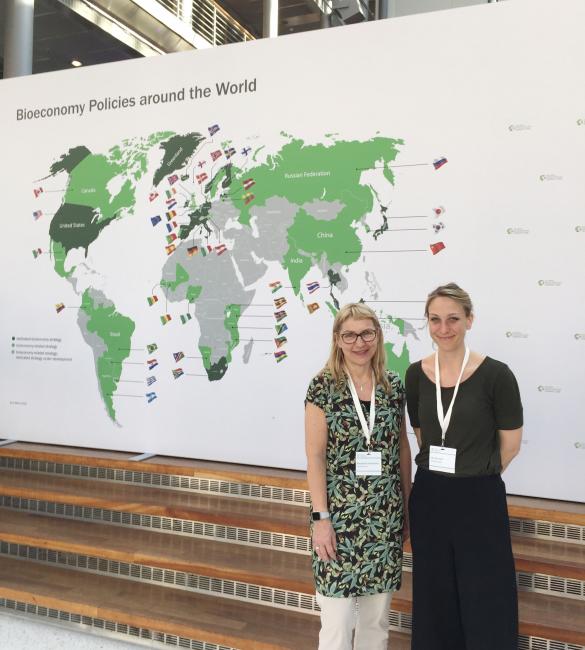Just a moment, Margareta Dahlström, professor of Human Geography. You recently attended the Global Bioeconomy Summit in Berlin…
2018-05-12.. Why did you attend this conference?
- This is a recurrent international summit at top level with a focus on sustainable bioeconomy. I attended as head of CRS, as coordinator for the research project Ingoskog and due to my involvement in our other projects regarding bioeconomy.
- My fellow researchers from Karlstad, Ida Grundel and Marie Nordfeldt, were also at the summit. It is an arena where researchers, industry, politicians, policymakers, authorities and NGO: s from all over the world meet. This is one of the reasons why the summit is so interesting – the very broad perspective both in regards to topics and participants.
What was the conference about?
- A number of themes were highlighted; climate change, sustainable agriculture, agriculture in tropical areas, sustainable production of biomass, ethics, nature preservation, strategies and policies, industrial perspectives and key indicators for measuring sustainable bioeconomy. The summit has a very broad approach and is an arena for different actors and stakeholders from all over the world. They are all are so important for finding common ground and global solutions. At the same time, it becomes clear how very different our starting points are.
You have attended the Global Bioeconomy Summit once before?
- Yes, last time it was with Magnus Lestelius, professor of Graphic Technology and development manager of Pro2BE -Processes and Products for a circular BioEconomy – at Karlstad University. We participated in the poster exhibition, which gave an opportunity to several interesting conversations and contacts. This year there was no poster exhibition, which I think was a pity. Instead, there was a “consumer corner” with different “bioeconomic” products and it was very interesting seeing the bioeconomy in a consumer context.
What is your lasting impression from this summit?
- Personally, I find the organizing of an international summit fascinating and exciting. It is different from a research conference; here communiqués are produced with bearing on the international political agenda. It struck me how important our own research projects actually are. This research is very much needed. The project Ingoskog is a good example, where we look into aspects such as increased competition for the raw material, the biomass. Not everything with bioeconomy is sustainable and it is necessary to balance different interests. Both at the Global Bioeconomy Summit here in Berlin and at the previous Bioeconomy meeting in Karlstad, the UN: s Sustainable Development Goals were on the agenda. I think these goals are so good because of their high degree of legitimacy. They work as a platform for a broad inclusion of different actors and turn research results into tangible, concrete tools.


